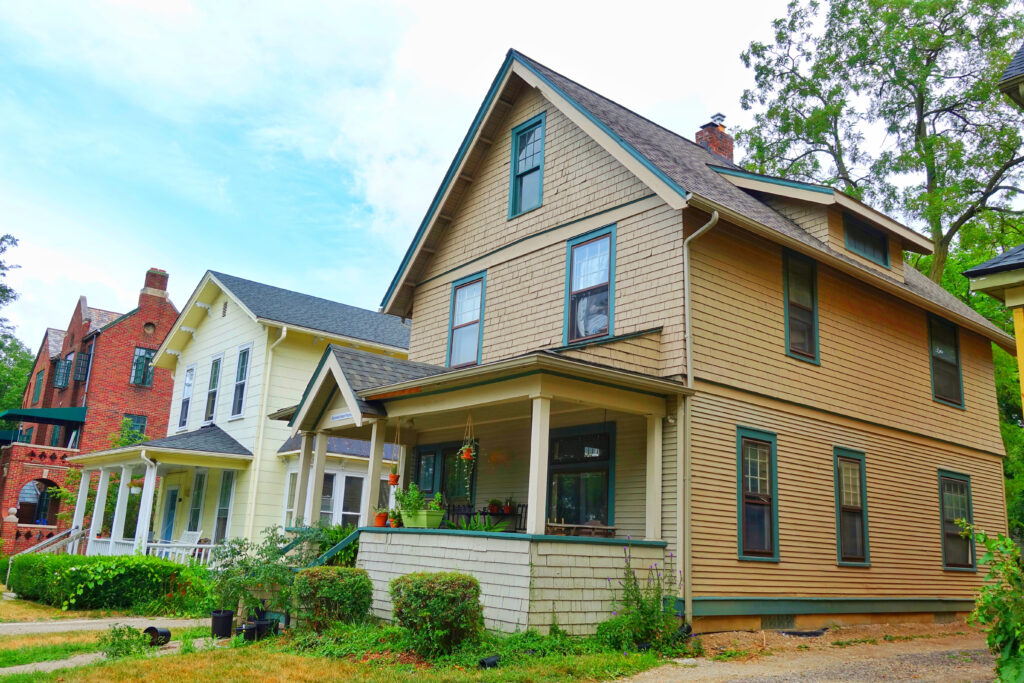Oregon Adult care homes: How to pay for, Laws and Regulations and Questions to ask…
Oregon is known for its beautiful parks and lakes, mountains and forests, and even deserts in the eastern part of the state. You can explore unique scenery that is a constant reminder why you live in the Pacific Northwest. The majestic Crater lake and Mount Hood bring visitors from all over the country. Portland is the largest city, a hub of culture, food and art, and the home of OHSU, a 500+ bed teaching hospital dedicated to progressive healthcare teaching; Eugene is home to the University of Oregon; Corvallis is home to Oregon State University; Bend is home to St. Charles Medical Center. Oregon is in the top 10 states for quality of life and healthcare and has plenty of offering for senior care and housing. It is likely that some of our aging adult population may require care at some point. Nursing homes are usually the first thing that comes to mind when people think of senior care, but nursing homes are not your only option. Adult care homes (adult foster care home) are private residences that provide seniors a home-like setting, and in Oregon, typically care for 5 residents or less.
Residents in an adult care home may only require very light assistance or may be dependent with several care needs. It is best to ask individual locations for their specific policies and licenses. Caregivers may perform several functions: personal hygiene and mobility and eating and dressing and toileting and behavior management. There are other levels and types of care as well, as designed to meet the requirements of the individual.

Oregon adult care homes defined
According to Oregon Department of Human Services, adult foster care home can be defined as:
When elderly people or adults with physical disabilities are no longer able to care for themselves in their own homes, adult foster care may be an option. Adult foster homes are single-family residences that offer 24-hour care in a home-like setting. A wide variety of residents are served in adult foster homes, from those needing only room, board and minimal personal assistance to those residents needing full personal care, or skilled nursing care with the help of community-based registered nurses.
Other terms you may hear when looking into adult care homes
in Oregon the common term is Adult foster care home. However, as you look for homes in your community, it is good to know the other terms/names you may hear:
- Adult foster care home
- Adult family home
- Board and care home
- Residential care home
- Nursing Home (although this is an outdated and not an accurate term for this level of care)

What do adult care homes in Oregon provide?
Residents receive 24-hour care in a single-family environment, and in addition each home has an operator who may employ additional caregivers to support with the care of residents. The intention of an adult foster care home is to provide services and care to the residents in the home while supporting their independence. The rights and choices of residents is most important, above all.
The basics
These homes are ideal for loved ones who require individualized care, while still allowing residents the independence, preferences and choices to make them happy.
- The residence looks very similar to a single family home.
- Communal space for socialization.
- Private or shared bedrooms.
- These residences are licensed to house a smaller number of adult residents, compared to assisted living communities.
Provided services
- Walking, mobility, which may include getting in and out of bed.
- Dressing
- Eating
- Toileting
- Bathing
- Grooming
- Behavioral issues (as needed)
Other services and tasks
- Housekeeping
- Laundry
- Medication management
- Meal preparation (dietary needs/requirements)
- Transportation
Additional information regarding services
- There are providers that are able to provide more complex care because of their training and experience. They mat receive help from visiting nurses.
- Caregiver may receive special instruction from registered nurses in order to perform a care task specific to a particular resident.
- Some providers may be able to meet your care needs if you are coming to the adult foster home directly from the hospital after surgery or you are recovering from a serious illness.
- Some adult foster care home providers have special training to provide care for people with Alzheimer’s disease, brain injuries, AIDS, respiratory failure, or the need for Hospice services.
An adult foster care home is a perfect fit if your loved only requires minimum assistance, or they may be much more dependent on care and services, in which case there are adult foster care homes which may provide the proper level of care. However, if the individual’s needs exceed such services, a higher level of care like a nursing home may be more appropriate. The comfort and peace of mind of your loved one is the most important thing. Ask each location you look at for their specific licenses and policies.
Adult foster care home licensing and regulations in Oregon
There are three license classifications in Oregon (Class 1, Class 2, and Class 3). Each classification is based on the training and experience of the care provider. The adult foster care home will post their licensing indicating the license classification of the residence.
Each classification may only admit residents with a certain number of impairments (six ADLs, activities of daily living) – eating/nutrition, dressing, personal hygiene, mobility, toileting and behavior management.
- A licensee with a Class 1 license may only admit residents who need assistance in no more than four activities of daily living (ADLs).
- A licensee with a Class 2 license may provide care for residents who require assistance in all activities of daily living, but require full assistance in no more than three activities of daily living.
- A licensee with a Class 3 license may provide care for residents who require full assistance in four or more activities of daily living.

Staffing requirements
- Operators must pass an abuse and criminal history background check.
- They must have the equivalent of one full year providing care for adults in the population for which they will care for.
- A current Oregon Certified Nursing Assistant License counts toward 6 months of a class one license.
- In addition, they must complete the eight-hour orientation, basic training and pass the qualifying exam.
What are the costs of adult foster care homes in Oregon?
You will notice as you search through care options for your aging loved one, the large discrepancies in costs. Adult care homes are no exception. The state average cost for a private room in Oregon is $2,800 per month at the base rate. Costs vary depending on where you live within the state and in some regions the costs may be higher. The good news is adult care homes are generally half the cost of a nursing home and can be less expensive than assisted living, but will not have the same amenities and variety of activities.
- Each city has varying costs when it comes to senior care.
- Expect to pay between $1,700 per month to $4,000 per month, on average.
- Costs are also affected by the care requirements of your loved one.
How to pay for an adult care home in Oregon

You want to consider your payment options for assisted living, memory care, and care homes. For these services, Medicare is NOT an option for payment.
The most common payment for these services would be out of pocket Private Pay and assessing a combination of retirement funds, personal savings, and pension payments.
Medicaid can also be an option, be sure to see if you or a loved one qualifies.
Long-Term Care insurance is also a possible option in cases of chronic conditions, be sure to see if you or a loved one qualifies.
For our Veterans and spouses of veterans, be sure to assess Veteran Aid and your eligibility for these benefits.
Medicare – NO:
- Medicare does NOT pay for Assisted Living.
- People 65 years and older and individuals with end stage renal disease are eligible for Medicare benefits, no matter their income.
- Coverage is meant for people in need of short-term care.
Private pay – YES:
- Many families pay for assisted living with private funds.
- Private pay can be a combination of retirement funds, personal savings, and pension payments.
- Family members may contribute funds to pay for assisted living or other senior housing and care.
Medicaid – MAYBE:
- Medicaid provides health coverage to millions of Americans. Eligible participants include: low-income adults, elderly adults and people with disabilities.
- Medicaid is administered by state, according to federal requirements. The program is funded jointly by each state and the federal government.
- Every state has their own individual Medicaid assistance program.
- National guidelines are in place do decipher how states must spend Medicaid money, but with allowances toward the guidelines.
- The state determines what levels of care will be covered by Medicaid, who is eligible, and how much the state will reimburse the care community.
- If you are unsure whether you qualify for Medicaid, you should apply. You may be eligible depending on your household income, family size, age, disability and other factors.
Long-term Care Insurance – MAYBE:
Long term care insurance is a great way to pay for assisted living, and planning ahead is important when considering how to pay for senior housing and care. Nearly 75% of people over the age of 65 will require long-term care and services at some point. Buying into long-term care insurance when a person is in their 50s and 60s is the most common time to do so.
- Long-term care insurance helps cover the costs of chronic medical conditions.
- Individuals and couples with the ability to pay into long-term care insurance have the advantage of a head start in allocating funds for senior care.
Veteran Aid and Assistance – MAYBE:
This benefit is available to some military veterans and surviving spouses who live in an assisted living community and those who have in-home care.
- There are specific guidelines, but a veteran may qualify for as much as $2,050 each month.
- A veteran with a sick spouse may be eligible for $1,600 per month.
- If a veteran has passed, their surviving spouse can qualify for $1,300 per month.

Things to consider when looking at adult foster care homes
- Who provides care in the home: Does the owner lives in the home, or is there a Resident Manager who lives in the home and is the main caregiver?
- What are the schedules and/or routines of the home?
- What are the care needs of the other residents?
- Would you feel comfortable living with the other residents and caregivers in the home?
- How do residents interact with one another?
Questions to Ask
Finding an assisted living community, can be overwhelming. Here are some tips on things to be observant of:
- Make sure the facility is clean and well maintained. You can tell a lot about the operation by noting What is clean and maintained. Are doorknobs loose or damaged? Do you see any frayed carpet or trip hazards?
- Visit during lunch hour to observe what the residents are eating. Ask questions about the nutrition program. Is there diversity in meals, healthy fruits and vegetables served at all meals, drink options?
- Speak to residents and/or family members to learn their perspective.
- Ask about staff and resident engagement. Get a feel for how staff interact with residents.
- Ask about the life enrichment programs. Activities are crucial when it comes to quality of life and play a key role in care for older adults.
- And finally (there is a plethora of more things to consider), get to know the leadership in the building. If you feel good around the executive director, head nurse, lead activities director and even the chef or janitor, it is a good sign you can trust them with the care of your loved one.
Resources and Links – Oregon
Office of the Long-Term Care Ombudsman – The Office of the Long-Term Care Ombudsman is a free service available to residents, families, facility staff, and the general public.
Oregon Abuse Reporting Line for Children and Adults – To report elder abuse, please contact 1-855-503-SAFE (7233). State law protects the confidentiality of all people reporting abuse and anyone who reports suspected abuse in good faith. The department also accepts anonymous complaints of abuse or neglect.
Confederated Tribes of Siletz Indians of Oregon-Elders Program – Caregiver Programs, Case Management, Home Health Services, Emergency Response System, Employment Services, Legal Assistance, Home Repair, Home Modification, Information and Referral/Assistance, Home Delivered Meals, Congregate Meals, Personal Care, Respite Care, Government-Assisted Housing, Sr. Center Programs
Nursing Facility Complaint Unit– If you suspect a nursing facility resident was neglected or abused, please contact the Nursing Facility Complaint Unit
Eldercare Locator This is a great resource to search for specific care in specific counties and cities. This database is a nationwide resource that connects older Americans and their caregivers with trustworthy local support resources. Connect with services such as meals, home care or transportation, or a caregiver education or respite from caregiving responsibilities. The Eldercare Locator is a public service of the Administration on Aging (AoA), an agency of the U.S. Administration for Community Living.
Medicare provides a search feature to find & compare providers near you, most senior housing and care providers are included on CareAvailability.com. Find & compare plans in your area. Determine if you qualify for premium savings
Medicaid offers information on how to apply for Medicaid, eligibility criteria, links to local state offices, and additional resources
The Alzheimer’s Association is the leading voluntary health organization in Alzheimer’s care, support, and research. Whether you are living with Alzheimer’s or caring for someone with the disease, information and resources are available.
The Oregon overview of the Adult Foster Home Program
Search other states for Adult Care Homes
Not finding what you’re looking for? Take a look below.
